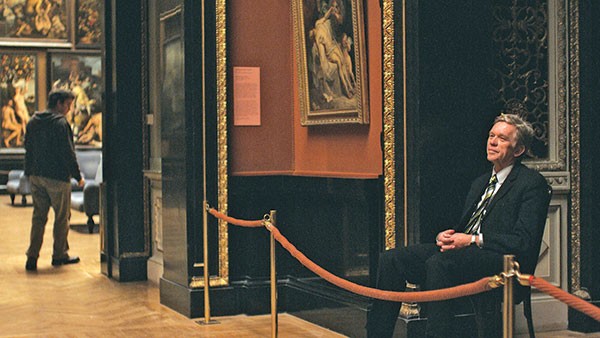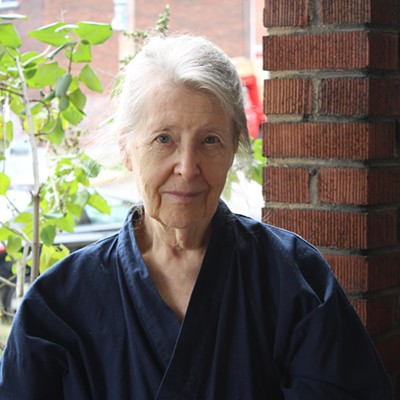It's difficult to appreciate art by looking at pictures of it. Part of the power of any piece comes from being in its presence, just inches from the artist's brushstroke or chisel, knowing that he (or she) stood right where you're standing — and even closer (no ropes or hawk-like docents) — creating what you can only observe.
In Museum Hours, American independent filmmaker Jem Cohen tells the story of Johann (Bobby Sommer), a guard at Vienna's Kunsthistorisches Museum, and Anne (Mary Margaret O'Hara), a Canadian visitor whom he befriends. The two get to know each other and have long, thoughtful talks about life and art, which you might think are the opposite of each other — but of course, not really.
Anne is in Vienna to visit a comatose cousin with whom she was close in childhood but hasn't seen in years. So Johann shows her around and fills her time with talk of friends, family, desire, history, materialism and the meaning of their lives and of the art in the museum — the latter being much easier to comprehend than the former. It's effectively a dramatized essay, and it reminds me slightly of Atom Egoyan's Ararat, but without that film's absorbing emotional and intellectual complexity.
Cohen's irony is often heavy-handed, and he tends to underline it. As a younger man, Johann tells us, he promoted rock bands (loud music) and did woodworking (loud buzz saws), so now, in his elder years, he's due for some dead silence. The film provides a Baedeker of its hazy gray contemporary city (Cohen never knew the old Vienna), and the story is a gently uplifting one of how friendships, even temporary ones, form and develop. Sommer is not a professional actor, which makes his dialogue feel more natural, but also less dramatically absorbing. (Speaking English, he sounds somnambulistic, like Wim Wenders.)
Early in the film, Johann tell us that the Bruegel room at his museum is the most popular, and that when people look at art they've seen before, they always discover new things. This is a cliché, he immediately acknowledges, but it's also true, especially with Bruegel (Pieter the Elder, although Johann never says). I think this observation is just as true for Cohen's didactic film: at its heart, yes, a cliché, but still somewhat open to involvement and interpretation. What else do we have?














